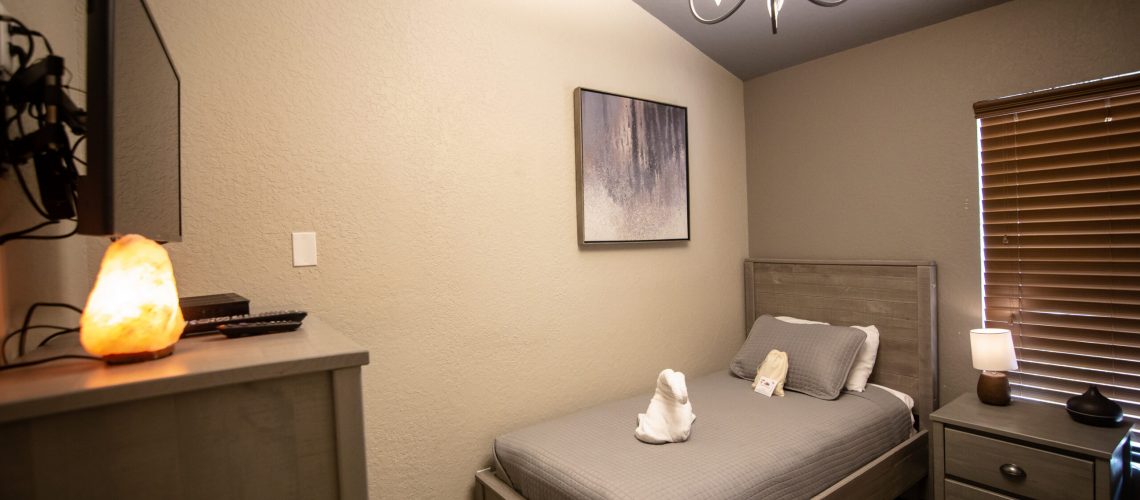When overcoming addiction, choosing the right treatment program is very important. Not all programs are the same, and each person dealing with addiction has different needs. It’s important to find a program that fits those specific needs for the best chance of success. In this article, we’ll explore the key differences between addiction treatment programs and how to choose the one that’s right for you or your loved one.
1. Types of Addiction Treatment Programs
There are several types of addiction treatment programs, each offering a different level of care. Understanding these differences can help you pick a program that matches your recovery goals.
Inpatient (Residential) Programs
Inpatient programs provide 24/7 care in a structured environment. Patients live at the facility for the duration of treatment, which typically lasts 30, 60, or 90 days. This type of program is ideal for individuals with severe addictions or those who need to be removed from their everyday environment to focus on recovery.
Outpatient Programs
Outpatient programs offer more flexibility than inpatient programs. Patients attend treatment during the day but continue to live at home. Outpatient treatment can be a good option for individuals with mild to moderate addictions or those who have completed an inpatient program and need ongoing support.
Intensive Outpatient Programs (IOPs)
IOPs are a middle ground between inpatient and outpatient care. Patients receive intensive therapy several days a week for a few hours each day but still live at home. This program is suitable for those who need more structure than traditional outpatient care but do not require 24-hour supervision.
Detox Programs
Detox programs are designed to help people safely stop using drugs or alcohol. Medical supervision ensures that the detox process is as safe and comfortable as possible. Detox is usually the first step in addiction treatment and is often followed by either inpatient or outpatient care.
2. Treatment Approaches Vary
Another important factor to consider is the treatment approach used by different addiction treatment programs. Evidence-based approaches are typically more effective in treating addiction. Here are a few common methods:
Behavioral Therapies
Behavioral therapies, such as Cognitive Behavioral Therapy (CBT) and Dialectical Behavioral Therapy (DBT), are widely used in addiction treatment programs. These therapies help patients identify and change negative thought patterns and behaviors that contribute to substance abuse.
Medication-Assisted Treatment (MAT)
For certain addictions, such as opioid and alcohol dependence, Medication-Assisted Treatment (MAT) can be very effective. MAT combines medications that reduce cravings and withdrawal symptoms with behavioral therapy.
Holistic Therapies
Some programs incorporate holistic therapies like yoga, meditation, and art therapy to treat the mind, body, and spirit. These approaches can enhance the recovery process by reducing stress, improving mental clarity, and promoting overall well-being.
12-Step and Non-12-Step Programs
Many addiction treatment programs follow the 12-Step model developed by Alcoholics Anonymous. However, not all individuals resonate with the spiritual aspect of 12-Step programs. Some treatment centers offer alternative non-12-Step programs that focus on different recovery philosophies.
3. Personalized vs. One-Size-Fits-All Programs
One major difference between addiction treatment programs is whether they offer tailored treatment plans or take a one-size-fits-all approach. Personalized treatment plans are designed to meet the specific needs of each individual, considering factors like:
- The type and severity of addiction
- Co-occurring mental health disorders
- Personal history and background
- Individual goals for recovery
4. Qualified Staff and Licensing
The quality of the staff at an addiction treatment center can make a huge difference in the success of the program. Look for programs that employ licensed professionals, such as:
- Doctors and Nurses: Medical staff are essential, especially in programs offering detox or MAT.
- Therapists and Counselors: These professionals should be experienced in addiction treatment and licensed in their field.
- Support Staff: Support workers and peer counselors play important roles in providing encouragement and guidance during recovery.
Make sure the addiction treatment program is accredited by recognized organizations such as the Joint Commission or CARF (Commission on Accreditation of Rehabilitation Facilities). Accreditation ensures that the facility meets high standards of care.
5. Aftercare and Relapse Prevention
A good addiction treatment program will not just focus on getting you sober—it will also help you stay sober. Aftercare programs provide ongoing support after the initial treatment is completed. These programs may include:
- Outpatient Therapy: Continued therapy sessions to help manage triggers and prevent relapse.
- Support Groups: Many treatment centers encourage participation in support groups like Alcoholics Anonymous (AA) or Narcotics Anonymous (NA).
- Sober Living Homes: For individuals who need a supportive, drug-free environment after treatment, sober living homes can be a great option.
6. Cost and Insurance Coverage
The cost of addiction treatment programs can vary significantly depending on the level of care and services offered. Inpatient programs are typically more expensive than outpatient programs, but many facilities accept insurance to help offset the cost. Before choosing a program, check if they accept your insurance and whether they offer payment plans or financial aid for those without insurance coverage.
If you’re looking for a trusted program, Spring Garden Recovery offers personalized, evidence-based addiction treatment designed to meet the unique needs of every individual. Take the first step toward recovery by reaching out to a reputable center today.



